EARTH360
I am a autodidactic polymath, author, and educator. Some of my work has been praised or commented upon by scholars and scientists such as Nobel Prize winner Sir Harry Kroto, philosopher Daniel Dennett, Sir Arthur C. Clarke, author Martin Gardner, biologist Lynn Margulis, skeptic and author Michael Shermer, Douglas Hofstadter, and James Lovelock. A notable book I wrote is: The Invention of God: The Natural Origins of Mythology and Religion. Comments on the book:
"Lauritzen has some good ideas ..." Daniel Dennett, Philosopher, Author.
"Anyone interested in science and religion should read this book." Dr. Elizabeth Loftus, Ph.D., Award-Winning Psychologist, UC Irvine.
"An interesting and thought-provoking book." Dr. Mamikon Mnatsakanian, Ph.D, Astrophysicist, Mathematician, California Institute of Technology.
I am currently working on another book, (working title) "The Atom and the Soul: The Prehistoric Origins of Science and Spirituality" as well as on a children's STEM fiction book, "Tommy Turtle Goes to the Rabbit School: Book 1, Turtle Math."
Sir Harry Kroto invited me to present my models at the first international interdisciplinary conference on Carbon-60 in 1994. I also designed a modern-day Stonehenge, called SpaceHenge. I also wrote a paper explaining geodesic domes. I am an advisor to the Lifeboat Foundation. As a swimmer, I was ranked 25th in the world at age 16.
I am a distinguished graduate of the Air Force Academy in Colorado Springs. One of my advisors at
the Air Force Academy was Roger
Bate who
co-wrote the Dover classic book on Astrodynamics and who also inspired my interest in computer
science and AI. While at the Air Force Academy, I was named the Outstanding Graduate in both
Behavioral Sciences
and Philosophy.
I received a master's degree from Purdue in Industrial and Organizational Psychology specializing in Human Factors (Usability) Engineering.
My classmate at the Air Force Academy and at Purdue was Captain Sully Sullenberger.
In the Air Force I studied information overload on the pilots and gave a lecture at the Air Force Test Pilot School. However, I felt the Vietnam War was immoral, and I left the Air Force as a conscientious objector. From about 1975-1985 I was a member of the Church of Scientology. (I have not been associated with this church since 1985).
In the 1980's and 1990s, I taught ethnic minorities and economically disadvantaged students as a teacher and substitute teacher in the inner city of Los Angeles, including South-Central LA and East LA, for over 20 years. Also in the 1990s, I used my computer programming skills to study highly composite numbers and I wrote a paper about them.
In the 2000s I taught at Otis College of Art and Design (Mathematics for Artists), at Los Angeles City College (Introduction to Psychology, Developmental Psychology, Abnormal Psychology, Critical Thinking) at Johns Hopkins University, Center for Talented Youth (Cognitive Psychology), and at Columbia College Hollywood (Science for Film-Makers). Also in the 2000s, I developed a web robot to find jobs for substitute teachers (me).
In the 2010s I taught for 8 years at a national university in China, Xiamen University. I taught
Spoken English in the College of Foreign Languages and Cultures and was also loosely associated with the
Brain-Like Intelligence
Systems Lab and the Multi-Media Lab (editing papers). In my free time, I studied Chinese language, geography, history, and philosophy.
Thanks to all my substitute teaching experience, I have taught
at 116 different schools, colleges and universities, in every grade from kindergarten through
university perhaps (inadvertently) becoming one of the world's most experienced
educators.
My current interests are cognitive science, AI, STEM education, and political science.
More about Bill
Myself and philosopher
Daniel Dennett discussing my first book
in August, 2011, in Santa Fe, New Mexico. Dennett later invited
me to an online group of scholars studying evolution and religion and posted that
"Lauritzen has some interesting ideas..."
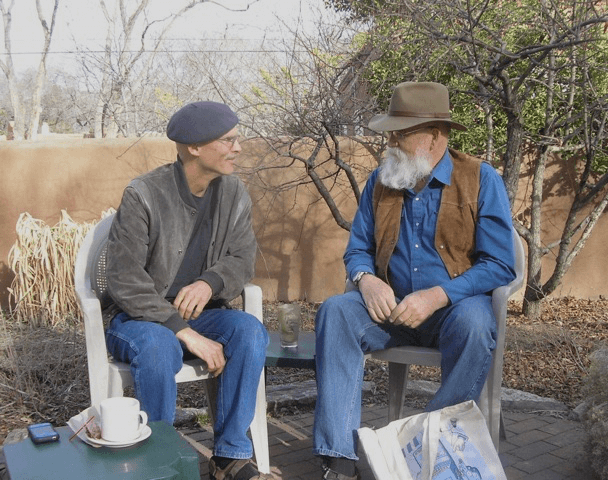
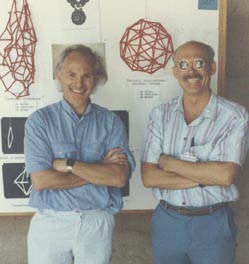
Nobel Prize winner Sir Harry Kroto (left) and me, 1994.
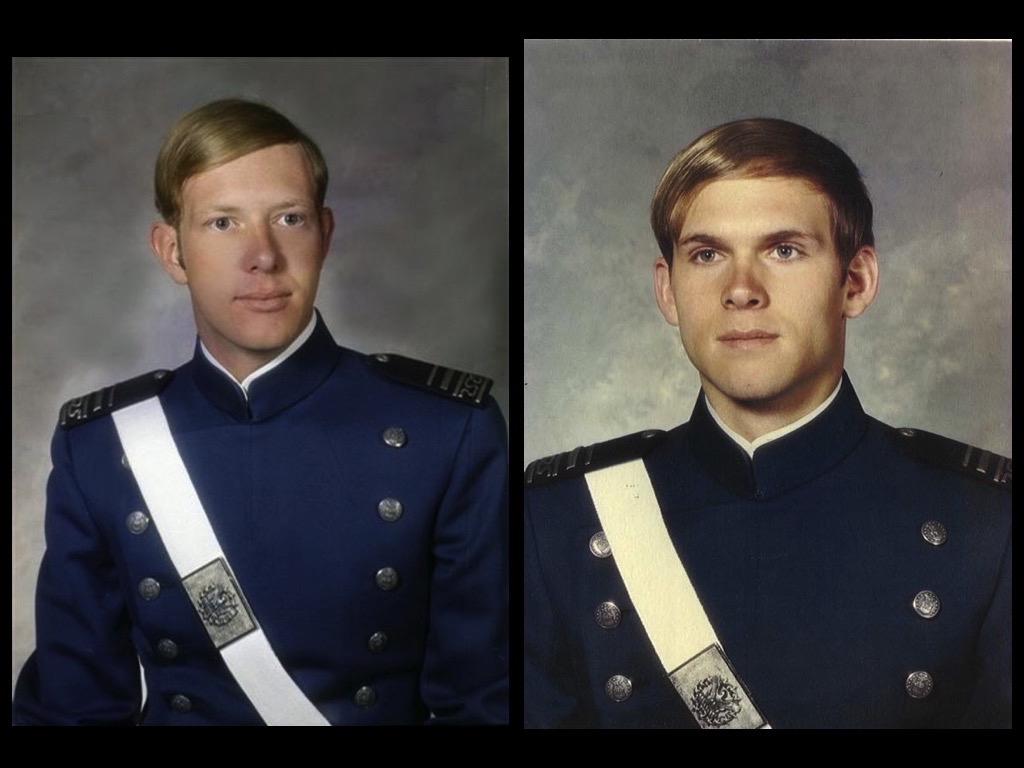
Captain Sully Sullenberger and me at the AF Academy.
We were sent to Purdue to do our master's degrees in Human Engineering.
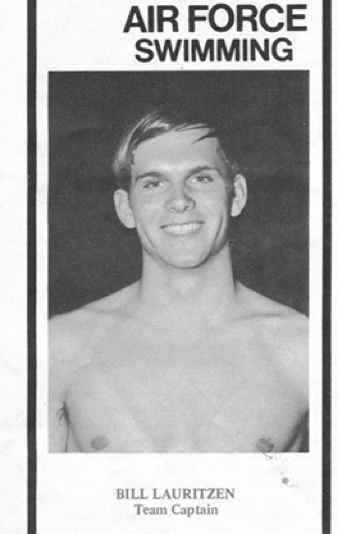
At the AF Academy.

I worked as a Human Factors Engineer (User Experience) for cockpit design in the Air Force.
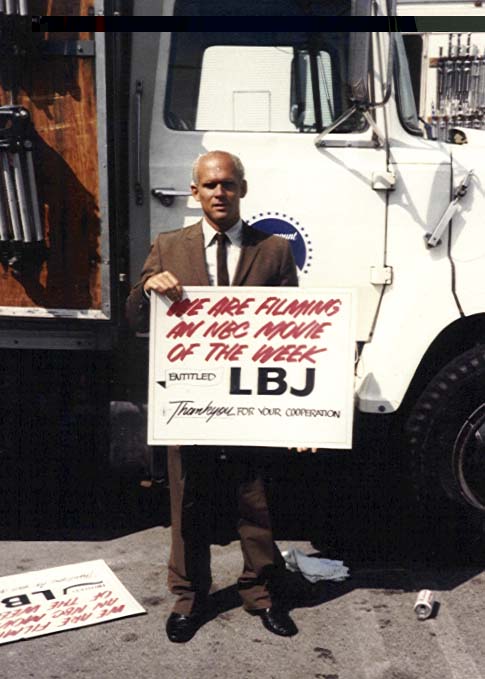
Working in Hollywood.

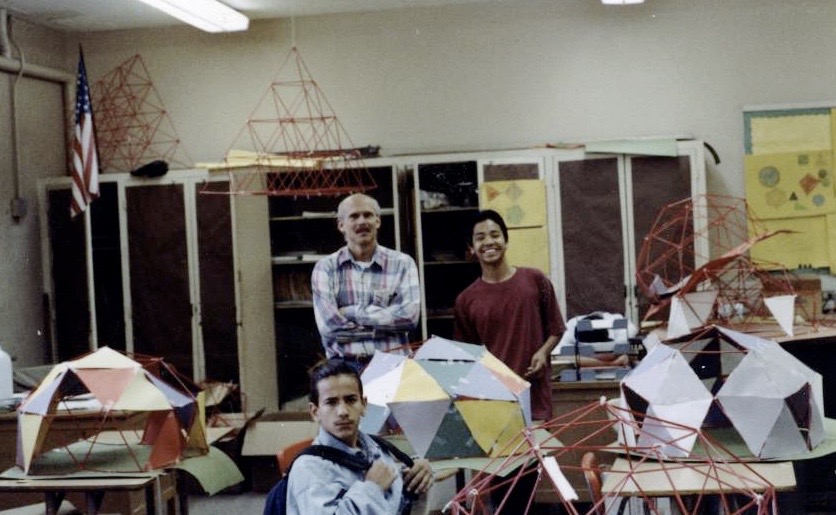
Teaching math in the inner city of LA.

With author/scholar Martin
Gardner at Gardner's home in North Carolina.
Gardner praised several of my papers.
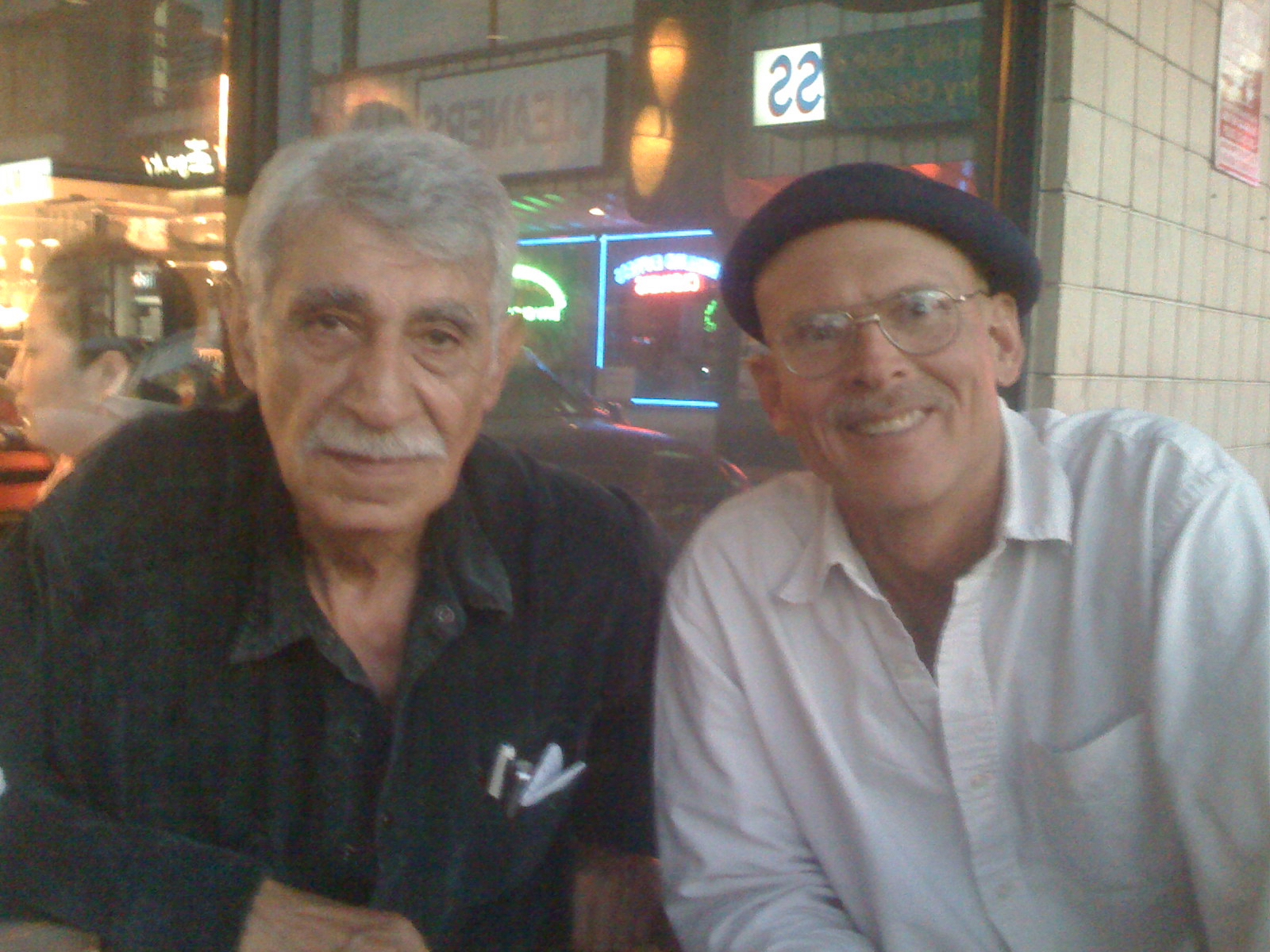
With Mamikon Mnatsakanian, astrophysicist and inventor of Visual Calculus.
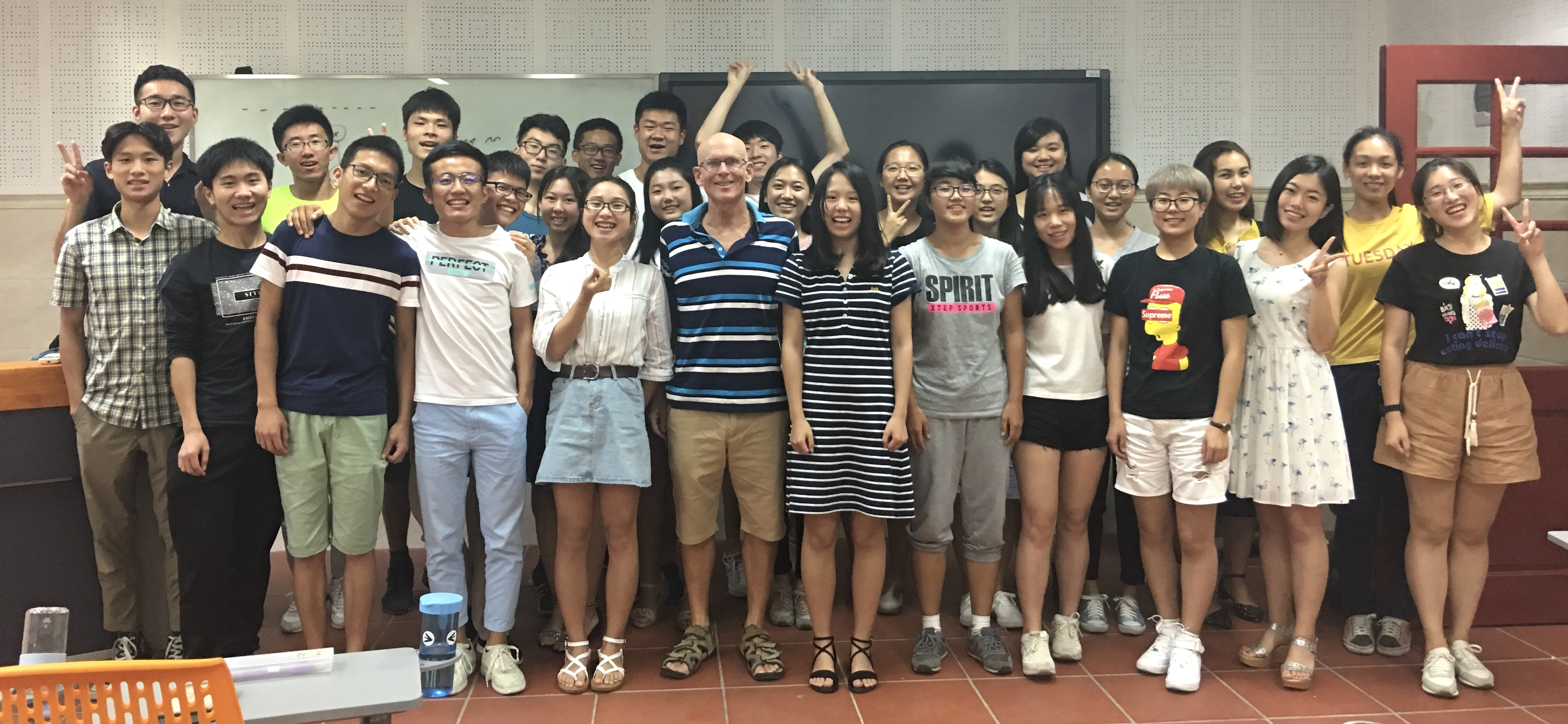
Teaching in China at Xiamen University.
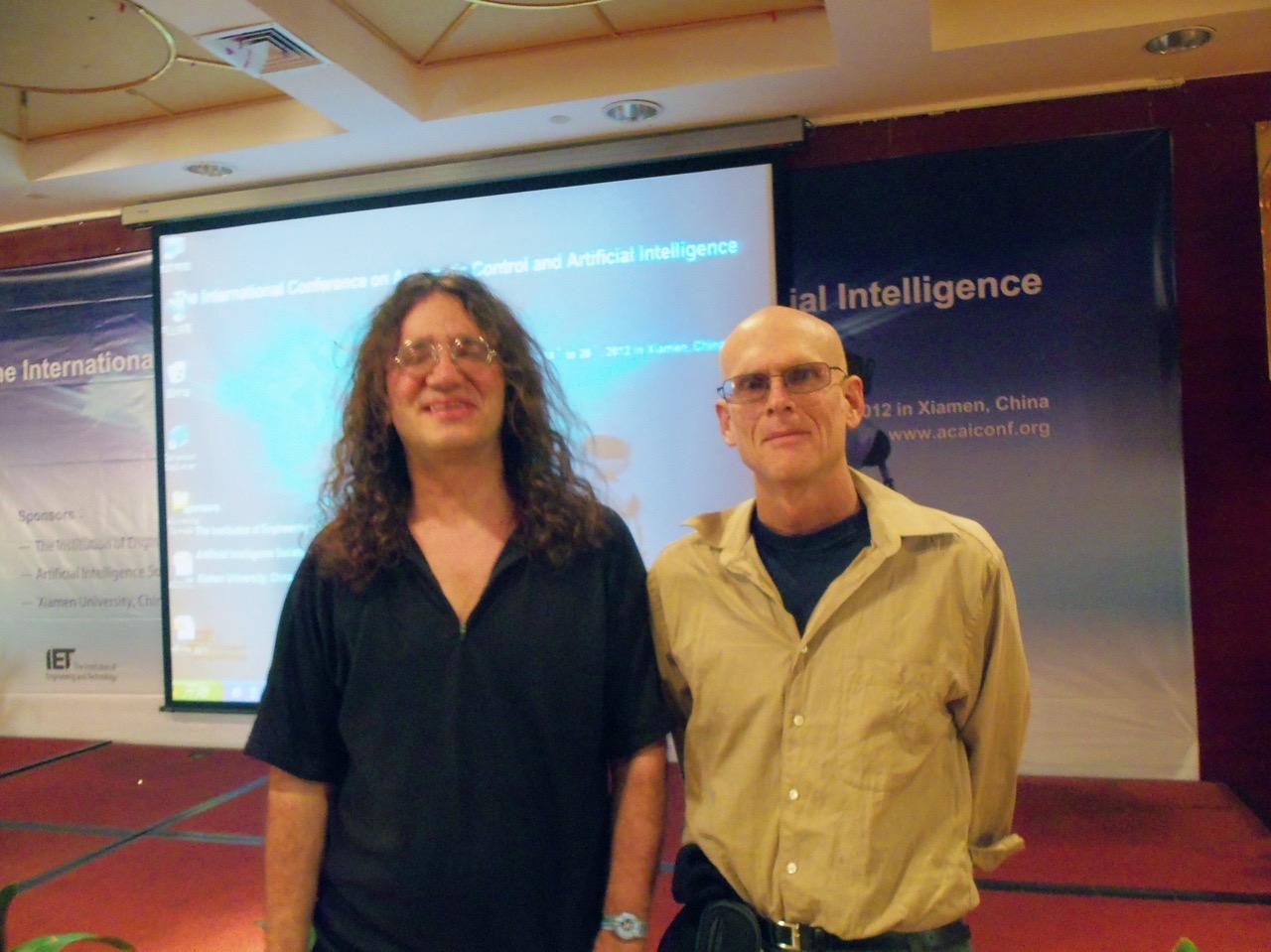
With Ben Goertzel, renowned AI researcher in Hong Kong.
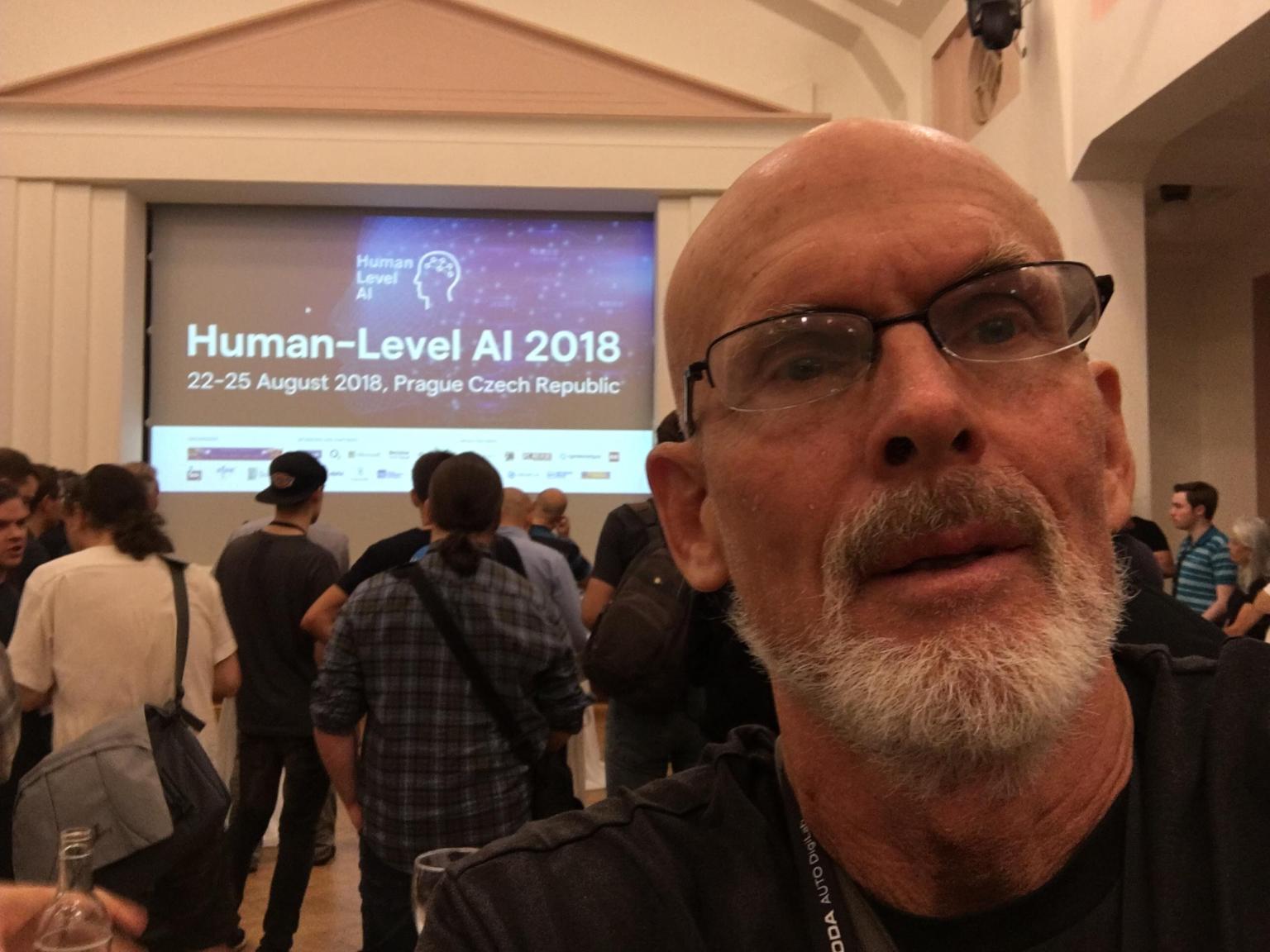
Attending an AI conference in Prague, 2018.


Organizing my community in China for renovation and beautification.
Following are some comments by some of the world's leading scientists and scholars on my work:





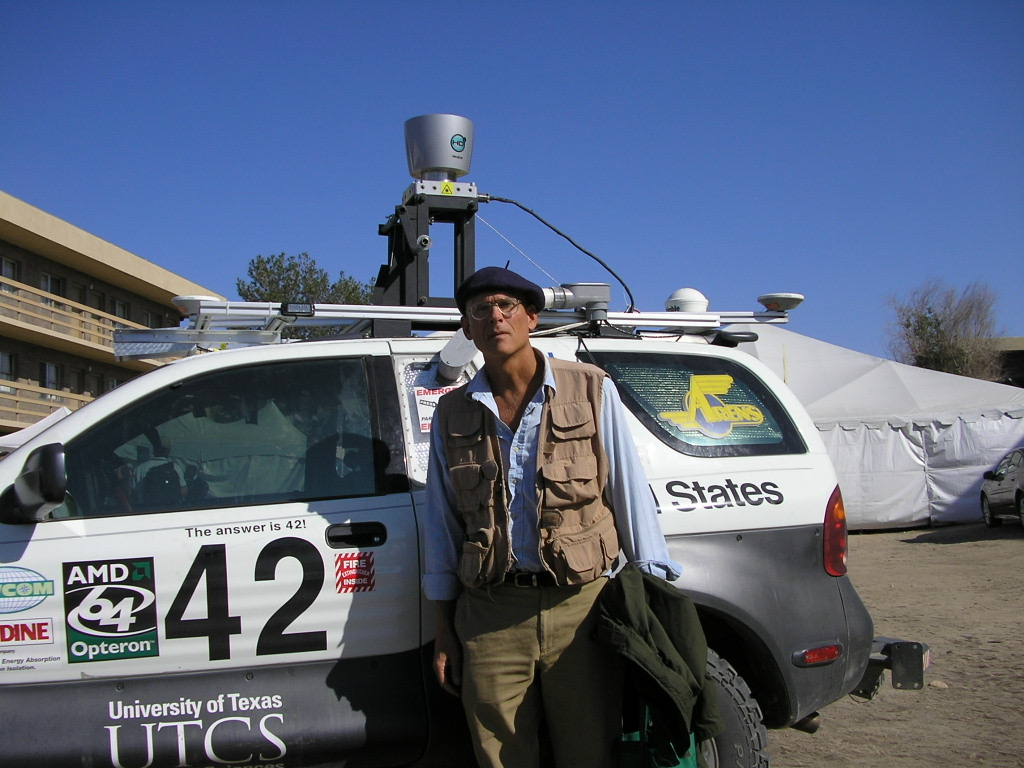
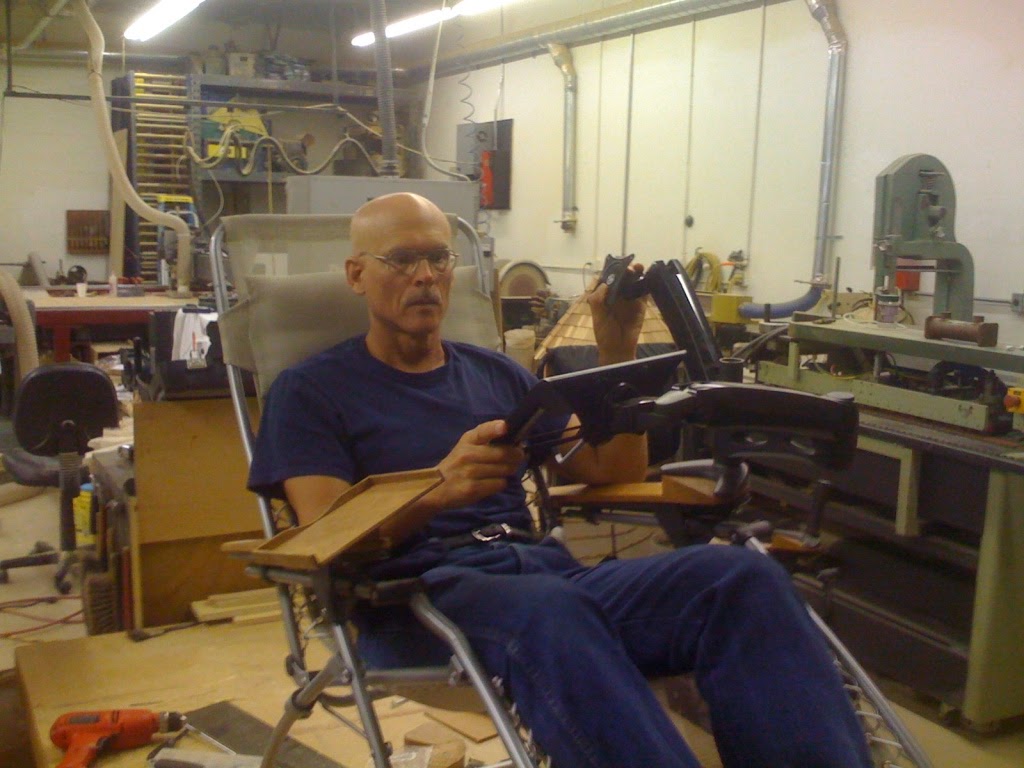
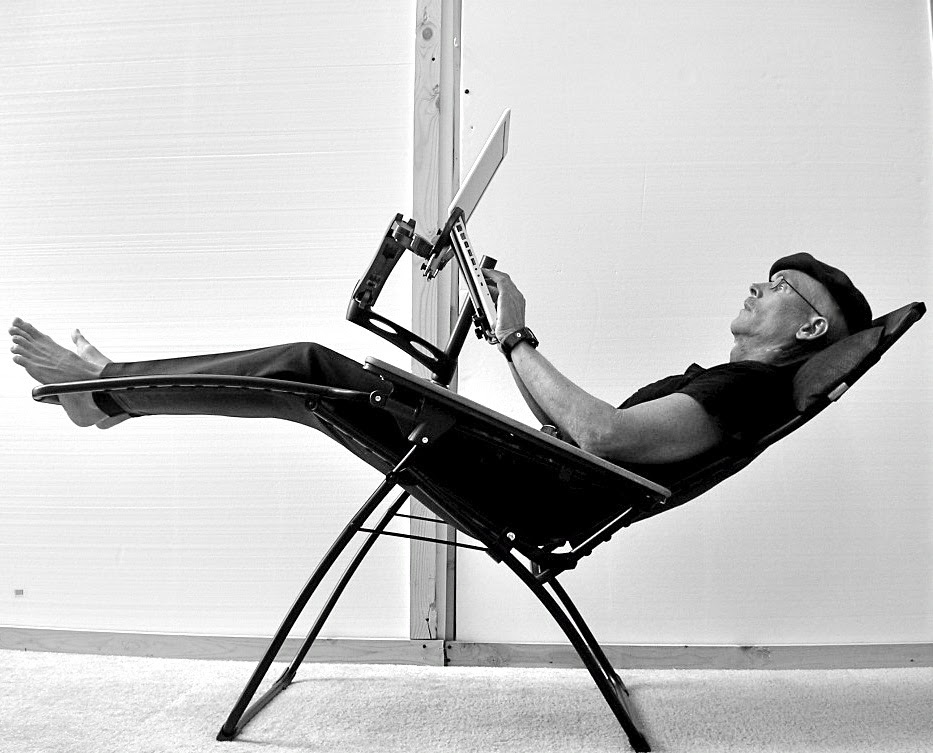
"Bill Lauritzen... who is some kind of genius".
- Sir Arthur C. Clarke, scientist, author and inventor of the communications satellite.
"I enjoyed reading it and begin to wonder about its applications..."
- James Lovelock, scientist and author, formulator of Gaia Theory, on The Social Applications of Highly Composite Numbers
"I read your article with high interest... eminently publishable".
- Martin Gardner, author and former mathematics editor of Scientific American magazine, on The Social Applications of Highly Composite Numbers
Thanks for your article. I looked through it and found it interesting.
- Douglas Hofstadter, Pulitzer Prize winning author of Godel, Escher, Bach, on The Social Applications of Highly Composite Numbers
inspiring...
- David Hanson of Hanson Robotics, designer of Sophia robot, on Bill's emotional curve.
Damn interesting... You have a most agile and... versatile mind.
- Michael Shermer, author, Why People Believe Weird Things on The Social Applications of Highly Composite Numbers
... the famous triangle paper...
- Harry Kroto, Nobel Prize winner in Chemistry, on Buckyballs Triangulated
... thought provoking.
- Robert Schoch, geologist, author, Voices of the Rocks.
I admire the clarity of your writing and the originality of your thought.
- Lewis Lapham, Harper's Magazine.
Thanks you very much for your letter... It appears that the... alignments may be cardinally oriented. If so, it is an interesting situation.
- E. C. Krupp, Astronomer, Griffith Observatory.
Excellent article.
- Arthur C. Clarke on Buckyballs Triangulated
It sounds like a wonderful idea!
- Storey Musgrave, former NASA Astronaut on Spacehenge
Sounds interesting and lots of fun.
- Louis Friedman, Director, Planetary Society on Spacehenge
Thanks for your charming numerophilic writings.
- Lynn Margulis, microbiologist, scientist, and author, on The Social Applications of Highly Composite Numbers
A fine piece...
- Martin Gardner, on Geodesic Dome Education
I passed your essay on to my Dean of Architecture...
- Arthur C. Clarke, on Geodesic Dome Education
I enjoyed reading it.
- Michael Shermer, science historian and publisher of Skeptic magazine , on Useable Science
... interesting paper...
- Arthur Loeb on Nature's Numbers ,